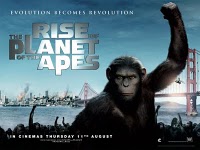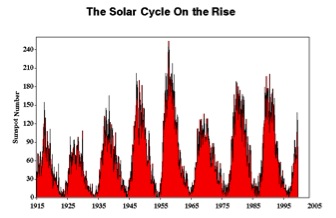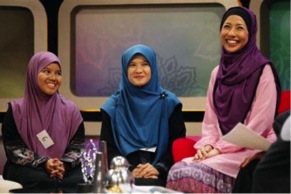This is a weekly post by Nidhal Guessoum (see his earlier posts here). Nidhal is an astrophysicist and Professor of Physics at American University of Sharjah and is the author of Islam's Quantum Question: Reconciling Muslim Tradition and Modern Science.
It is Ramadan, so Muslims tend to spend an inordinate amount of time watching TV, partly because they need to “kill time” waiting for sunset to break their fast, and partly because TV channels in this part of the world often present their best programming (historical series, comedy shows, and others) during the holy month. And Muslims tend to get large doses of preaching from the TV set.
I spend much less time in front of the TV set than the average person, and my viewing habits are quite different than the typical guy, but during Ramadan my TV time increases substantially. And so the other day, as I was flipping between channels, I caught one female preacher (Dr. Lina Al-Himsi on Iqra-TV), and so I recalled a news item I had read several weeks ago about a Malaysian reality-TV program which, through auditions, aims at selecting the best female Muslim preacher, or proselytizer (“da`wa” in Islamic parlance).
The recordings of this reality-TV show started a few months ago, but the program itself will not air until October 2011. The program, titled “Solehah” (from an Arabic word meaning “pious female”), has 13 episodes, through which the candidates are judged by a panel of clerics for their religious knowledge, their oratory skills and charismatic personality.
A previous show, “Imam Muda” (Young Imam), on another Malaysian channel, had been very popular among the public on the selection process for the best Imam. The show is now going into its second season.
Now, how prevalent, accepted, or shunned, are female preachers in the Muslim world? First, it must be stated, for those who may not realize this, that in mosques, ladies, however knowledgeable or scholarly they may be, are never allowed to preach to men; they can, however, conduct sessions to a female-only audience, completely segregated, out of sight and out of hearing from the male section. And except for a few cases here and there, most famously that of Dr. Amina Wadud conducting prayers to a mixed audience a few years back, Muslim women are not allowed, by the tradition, to lead the prayer when men are present or available.
But this does not apply to the TV and Radio media, where women now quite routinely appear on air and on screen and preach to whoever will listen. And a number of them have become media stars, for example: Magda Amer, who preaches in one of Cairo’s leading mosques; Soad Saleh, who is considered as one of the world’s leading female scholars of Islam and who has a TV show titled “Women’s Fatwa” on an Egyptian satellite channel; Neveen El Guindy, who has a call-in show titled “Qadaya al-Mar’ah” (Women’s Issues) on Iqra, one of the region’s top Islamic satellite channels. Not everyone is thrilled to see female preachers on TV. A few years ago, a heated debated broke out in Saudi Arabia (as usual between traditionalists and “liberals”) about whether women should be allowed to conduct such shows on TV. The liberals were arguing that it is important to let women at home hear one of their own explain issues in ways they can relate to; some even accepted the idea that those preachers be required to wear niqab (face-veiling). The traditionalists were invoking the same argument they hold about the prohibition of women driving, namely local tradition and not letting men watch women for hours under the pretext of religious learning…
But not all female preachers are TV or Radio personalities; many work on the ground: they go out and spread the word, presumably to female audiences (in hospitals, community centers, etc.). In Egypt, crowds of women have been reported to assemble to listen to talented female preachers.
In Morocco, for example, the Ministry of Religious Affairs has been supporting a curriculum for women preachers (“murshidat”), and indeed tens of them have graduated and taken jobs in various provinces over the past several years.
Female Qur’an reciters have also become popular, and indeed in Algeria, a popular TV show has for several years now conducted a competition of Qur’anic recitation for both young men and young women, who appear on the same stage but compete within their own gender group.
As to what kind of discourse is propagated by these female preachers, there have been reports of concern by governments that these preachers do not get used to spread a jihadi ideology. Indeed, the Palestinian Ministry of Endowment and Religious Affairs in the West Bank warned women preachers to stay away from issues of politics and activism and to concentrate only on domestic and daily life affairs.
It would be very interesting to hear from readers of Irtiqa about female preaching practices in their parts of the world and which Muslim women preachers, scholars, or personalities they may be familiar with or have seen become famous, whether deservedly or not.








